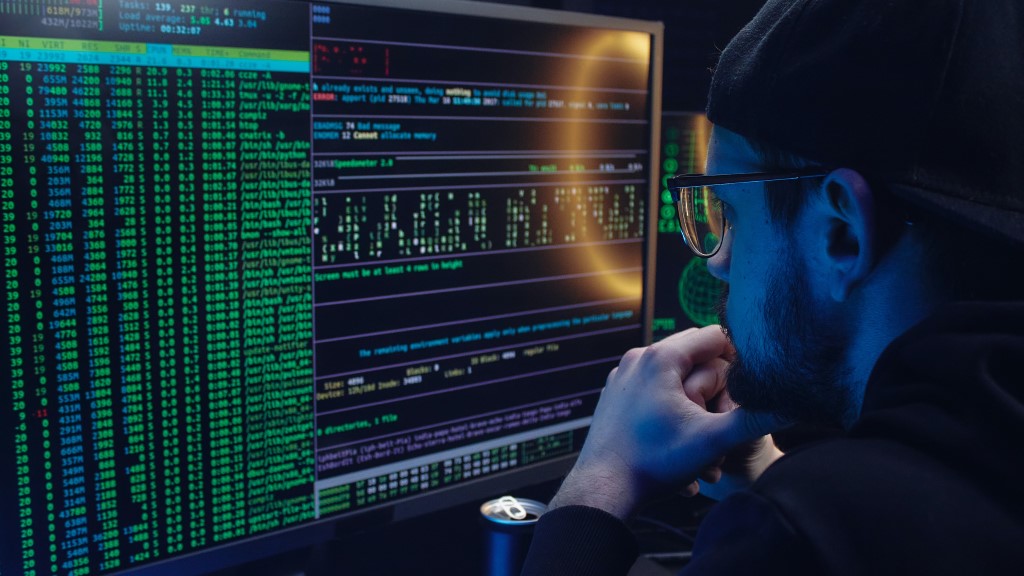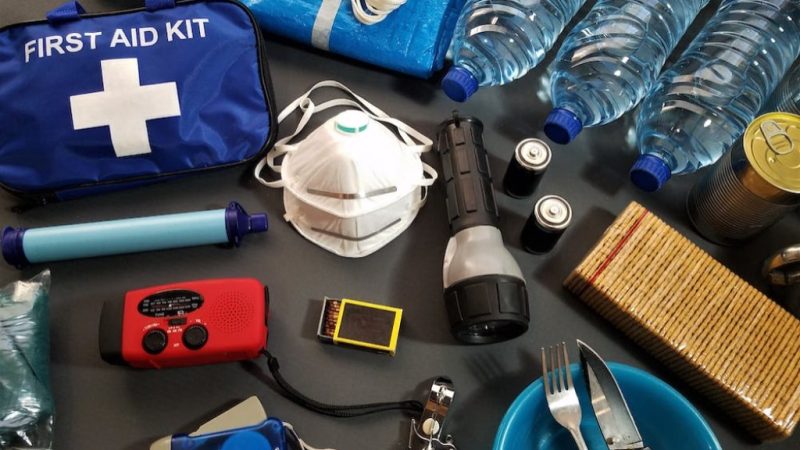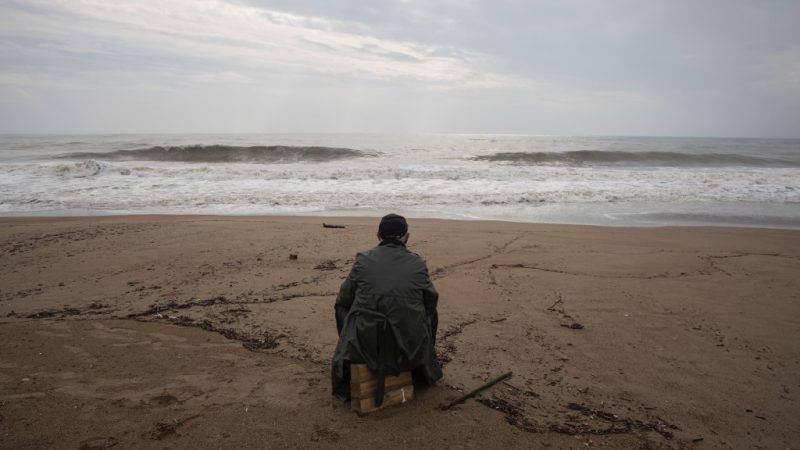In the modern digital world, there is no such thing as personal freedom or genuine privacy.
There is no place you can go where the government or cybercriminals will not be able to find you due to the advancement of the internet and technology that makes information easily accessible and trackable.
Unless you put in a significant amount of effort to erase your digital footprint.
To become untraceable in today’s world, the only option is to create the illusion that you were never there in the first place, which is a challenging endeavor.
However, removing a digital footprint is possible, despite the fact that it is a time-consuming process. If you are truly dedicated to the idea of living off the grid, there may be a way for you to do so.
It is always a good idea to clean up your digital footprint, even if you don’t intend to go completely offline, because doing so can assist in the protection of your data and reduce the likelihood that you will become a victim of a cyberattack or identity theft.
- Is It Even Possible to Lead an Off-Grid Lifestyle?
- Making it so that you can't be found
- How to Erase Your Digital Footprint While Maintaining Your Privacy
- Ensure the Safety of Your Network
- Keep in mind the Operating System you're Using
- Find any old accounts and get rid of them.
- Use a Web browser with a higher level of security
- Avoid using any apps at all costs
- Don't Buy Anything Online
- The Final Word
Is It Even Possible to Lead an Off-Grid Lifestyle?
The expression “big brother is watching” is more applicable now than it has ever been before as a direct result of the internet and other advances in technology. Everything can be accessed, traced, and linked to other things.
It doesn’t matter how far you go or what you do to hide your tracks; if someone really wants to find you and has the means to do so, they will. It doesn’t matter how far you go or what you do to hide your tracks.
Your data is ultimately accessible to anyone who possesses the skills necessary to hack through those systems, even if they have passwords, firewalls, and encrypted networks in place. You also have no privacy and are not protected from surveillance by the government, despite the widespread belief to the contrary.
The American Freedom Act gives the FISA courts and other government agencies the authority to violate the rights guaranteed to us by the Fourth Amendment. When this is taken into consideration alongside the rapid advancement of cutting-edge tracking and surveillance technology, it becomes clear that there is no place to truly hide.
Therefore, the question that needs to be asked is: is it actually possible to live off the grid?
To what extent are you willing to go in order to make yourself untraceable? That is the question that needs to be answered. It is possible for you to continue leading a “normal” life while at the same time increasing the amount of privacy you experience, but despite this, you will still be tracked. Living in a society makes it impossible to avoid leaving behind some trace of one’s existence.
On the other hand, if you move to a distant island or the middle of the jungle and try to keep as low a profile as you can, you will have a great deal more privacy and will be much harder to track down.
Despite this, there will never be a time when it is as if you were never there. If you do something that the government finds objectionable, for instance, they have an abundance of cutting-edge tracking systems at their disposal that they can use to find you and bring you to justice.
So the question is, is it possible to completely disappear? No. However, for the average person who isn’t in a rush and wants more privacy or at the very least wants to better protect and hide their information, this is a viable option. Those who aren’t on the run should consider using it. However, even if you want to clean up or erase the majority of your digital footprint, it will take a significant amount of effort to do so.
Making it so that you can’t be found
The best way to live off the grid is to have no ties to society and the ability to vanish to a remote location whenever you like. However, most people today lack the necessary resources and skills. The average person who wants to live off-grid will most likely be able to fall somewhere between truly living off-grid and simply being harder to track.
However, regardless of where you fall on the “wanting to live off-grid” spectrum, it’s useful to first understand how different levels of privacy work when it comes to becoming untrackable.
Level 1: The first level of privacy entails doing as little work as possible to hide your tracks. At this point, your family, friends, or acquaintances might not be able to find you, but someone with a bit more expertise, like a private investigator, might be able to.
Level 2: you’ll need to put in a little bit more work. It would be necessary to rename all accounts, including those associated with your car, your phone numbers, your utilities, and your computer. In addition to making use of encryption services, you should destroy any documents and other items that you possess that contain sensitive information. This is an absolute necessity if you wish to remain untraceable at this level. It is still possible to locate you, but doing so will set you back at least $5,000.
Level 3: In order to achieve level three privacy, you will need to significantly increase the amount of money you spend and make significant adjustments to your lifestyle. You will need to relocate, pay cash for most purchases (especially real estate and vehicles), and use an LLC to conceal your identity. You are also responsible for making sure that the documents pertaining to your taxes do not contain your legal name. At this point, you might be able to carefully keep in touch with some close relatives or friends, but it would cost a significant amount of money and effort to find you.
Level 4: At this point, you are making an effort to conceal yourself from authorities from the government. You should keep in mind, however, that the only reason you would need to hide at this level is if you had committed some sort of wrongdoing and were a criminal. However, if this is the route you intend to take, you will be required to move to a remote location, change your name, and never work or pay taxes again. Only then will you be able to take this course of action.
You will not be able to get in touch with anyone you know, and you will be compelled to undergo a comprehensive lifestyle transformation while avoiding anything that might bring up memories of your previous existence. Participation includes going anywhere that has facial recognition cameras installed and being detected by them.
How to Erase Your Digital Footprint While Maintaining Your Privacy
If you are unable to go completely off the grid for any reason, but you are still interested in remaining untraceable and protecting your data, the following suggestions may be of assistance to you:
Ensure the Safety of Your Network
If you have no choice but to use a computer and the internet, you should ensure that your network can support encryption. Your information can be protected from unauthorized access by encrypting the data that is communicated and transmitted over a computer network.
Beginning with a network diagram to obtain a visual representation of all the components that comprise your network can be an extremely helpful first step to take.
Having a map of your network and the devices that are connected to it can help you understand where your data is going and how to protect it. This is because different types of devices are connected and communicate with one another in a variety of ways.
Keep in mind the Operating System you’re Using
The safety of different operating systems varies greatly, with some being much better than others in this regard. One of the worst kinds of systems, Widows, is one that is notoriously susceptible to having its security compromised. Although the price of a Mac operating system is higher, its performance is marginally superior. Linux is without a doubt the option that offers the highest level of safety at the lowest possible cost.
You should also think about utilizing an operating system that does not connect to the internet if you want to ensure the safety of sensitive information. Even if you choose to keep your files on the hard drive of your computer rather than in the cloud, your operating system might still be able to upload those files to the internet at the push of a button.
You can ensure the safety of the digital information that is most personal to you by partitioning your computer and storing the sensitive data on the portion of the device that is not connected to the internet.
Find any old accounts and get rid of them.
Think back to when you got your first computer and started using the internet for the first time. Think about how many different accounts and subscriptions you’ve signed up for in the time since then. Hundreds, if not thousands, of accounts, and each and every one of them, even if they are inactive or are no longer being used, is another way that you can be followed or hacked into.
Because most people do not keep a running list of all of the online accounts they’ve ever created, this is one of the steps that proves to be one of the most challenging. Examining all of your email is the most useful thing you can do right now.
Anything that you have not manually unsubscribed from will continue to send you email messages. In order to delete your accounts, you must first go through your existing email account and then follow the links in the emails you receive back to the original website.
This includes making an effort to re-login to previous email accounts. If you still have access to all of your previous email accounts, you should be able to locate the majority of the websites on which you have an account that contains your information.
Use a Web browser with a higher level of security
Your operating system, as well as the internet browser that you use, both have the potential to compromise you. It is common knowledge that Internet Explorer is one of the browsers with the lowest level of security.
In spite of the fact that Google Chrome is said to be the most secure browser, there is evidence that the company uses the data it collects on its users for unethical purposes. As a direct consequence of this, some superior alternatives include Firefox, Brave, and Tor.
Avoid using any apps at all costs
When you download a new app and sign up for it, you are agreeing to give the developer of that app permission to use your personal information. Consequently, it is necessary for you to delete your account from outdated apps and get rid of any modern apps that aren’t serving a purpose for you.
If you absolutely must use an app, check that it has solid privacy settings and gives you the option to opt out of providing the developer with access to any of your personal information.
Don’t Buy Anything Online
E-commerce and online bill paying are two of the most straightforward ways to trace someone’s whereabouts and identity. Unhappily, as the world becomes more digital, a growing number of businesses are placing a higher priority on digital services than paper services. Nevertheless, the most effective method for keeping your information secure is to refrain from disclosing it in as many locations as is humanly possible.
The goal is to limit your presence on the internet as much as possible. Avoiding things like online shopping and paying bills online if at all possible. If you absolutely must, check that the company you’re dealing with has robust security measures in place to protect the confidentiality of your personal information.
The Final Word
To tell you the truth, there are a lot of other measures you can take to keep your data secure and get rid of your digital footprint. The list could go on forever and ever, and it could include removing social media accounts, adjusting privacy and location settings on your phone, installing ad blockers, and doing a variety of other things.
The most important thing is to minimize the amount of time spent near computers that can leave a digital footprint. If you are required to use a computer, you should exercise extra caution regarding the privacy settings, encryption services, and locations to which you give access to or store your information.






